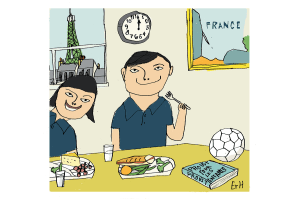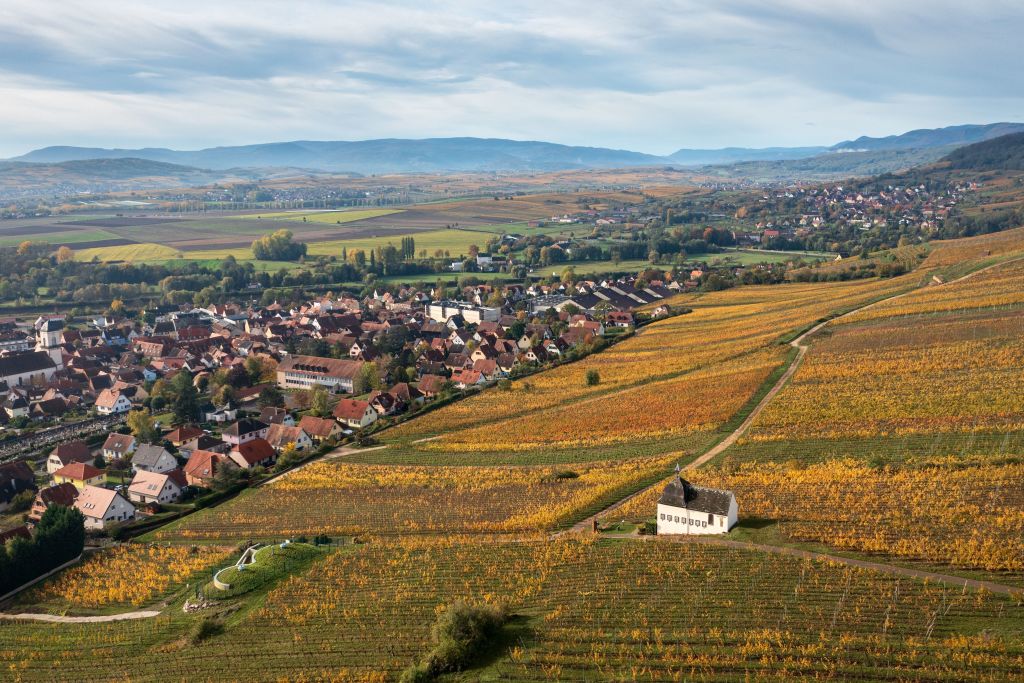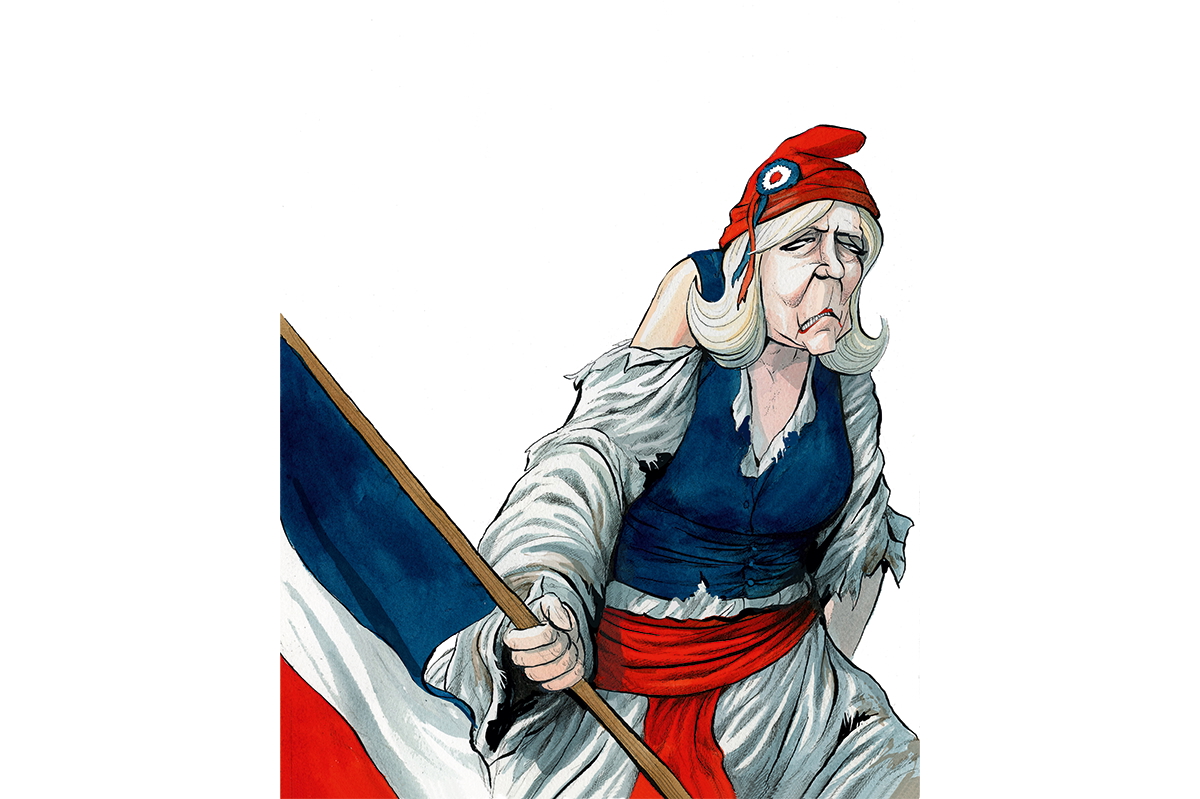Pitching your tent for weeks on end in the cold and mud, with no power or plumbing. Running in a pack after accelerating lorries and clutching frantically at the back door handles. Risking not only your own life but even the lives of your children by crowding into unseaworthy dinghies, in which to drift precariously across the busiest shipping lane in the world… All this full-tilt determination to flee intolerable circumstances and get into the comparative Valhalla of the UK makes perfect sense — if the place you’re so desperate to leave behind is war-torn Syria or famine-ravaged Yemen. But the country on whose coast these yearning, immiserated would-be UK immigrants are camped, and have historically camped for 20 years, is France.
Excuse me. What’s wrong with France? Some Iranians the Border Force scooped from the Channel over the holidays may have been Christians in flight from religious persecution, but last time I checked, France, at least nominally, was Catholic.
Ever since the Red Cross established Sangatte in 1999, I’ve watched countless interviews with mostly African and Middle Eastern migrants in Calais. Journalists always ask how long they’ve been trying to get to the UK and whether previous attempts have been stymied. But to my dismay, interviewers rarely pose the $64,000 question: ‘Listen, you’re already in France! Tourists the world over, including plenty of Britons, spend buckets to holiday here! It’s a republic! Also in the EU! Rule of law! Way nicer weather! What does Britain offer that’s so enticing that you’ll repeatedly put your life in peril, the better to be shed of France?’
At last, a recent Channel 4 News broadcast supposed that some migrants are especially hell-bent on reaching the UK because of ‘the language’ — which might ring true were we talking Australians or Canadians. But the interview that had just concluded was with a Britain-or-bust African migrant who, when asked how long he’d been camped in Calais, answered: ‘Ten.’ The interviewer was obliged to fill in hesitantly, ‘Months?’ A migrant who does not know the word ‘month’ is not a fluent English speaker eager to put his second-language skills to profitable employ.
The broadcast’s other explanation was that some migrants might already have a family member in Britain, which fails to clarify why that family member also prioritized getting to this country, when for the most part said relative would also be from Iran, Iraq, Afghanistan, Eritrea, Ethiopia or Sudan, and might very well also have succeeded in settling in the UK after fleeing war-torn, famine-ravaged France.
Little the wiser, we’re left to speculate:
1) Most international restaurant critics agree that even high-end French eateries have deteriorated, while the quality of British haute cuisine has soared. Head to head, the crumpet beats the croissant. The Parisian fashion for heavy cream sauces has given way to lighter, fresher fare commonplace in London’s Soho. Judiciously, the newcomers can’t bear mayonnaise on their chips.
2) France may maintain the appearance of prosperity, but migrants in what was until recently known as ‘the Jungle’ subscribe to Bloomberg. Macron’s retreat on budgetary reform has pushed this year’s deficit above the eurozone’s limit of 3 percent of output. The French national debt as a share of GDP has reached an alarming 97 percent, while Britain’s is still under 87 percent. Migrants find Philip Hammond’s ostensible end to ‘austerity’ worrying, but have faith that the Tories remain half-heartedly committed to reducing the deficit. Given the unsustainable largesse of French public services, migrants see the long-term economic prospects for France as more concerning.
3) Newscasts often reference migrants’ resolve to set foot in Dover before the UK leaves the EU because these aspirants have the confused impression that Home Office policy regarding non-EU immigrants has anything whatsoever to do with EU membership. But it’s the media that’s clueless. The optimistic self-starters in Calais anticipate that a WTO no-deal Brexit in March will open up trade deals across the globe, and are merely eager to get in on the ground floor.
4) Back to language. In France, English-language films and TV shows are dubbed, making viewing pleasantly effortless for French-speakers, but depriving the audience of valuable opportunities to bone up on English. This impedes mastery of set expressions like, ‘Where is my free house?’
Here’s what’s wrong with France: ID cards are mandatory, and the French welfare system is contributory. Britain’s benefits are less conditional. Successful asylum-seekers qualify for the same benefits as UK nationals, who don’t have to ante up first. While cases are processed, which can take years, applicants get housing and a meagre weekly stipend that may still sound like a lot of money to the Sudanese. Not being supposed to work in theory doesn’t mean you can’t in practice. Now that the NHS is meant to charge foreigners lacking legal residency for care, Channel 4 News inevitably just ran a package that deplored restricting medical access for the ‘vulnerable’ and reported that doctors are pleading for the policy to be reversed.
Among starry-eyed migrants, Britain’s reputation for soft-touch social policy could be exaggerated, perhaps wildly so. Wealthier, better-educated Iranians may have grander plans. Yet for the impoverished (albeit with phones, connecting them to www.gov.uk/browse/benefits and kin who’ve made it here), benefits, and a thriving black economy that allows for both earning money and keeping it, have to constitute major pull factors.
Add the high likelihood that failed asylum-seekers won’t be deported, and you have the drivers too impolitic to mention on the news. Two or three years back, I remember one journalist in Calais finally asking migrants why they wanted so badly to come to Britain. One said for the education (apparently there are no schools in France). Having clearly done a Google search on ‘how to bamboozle the English’, another tilted his head with a queasy grin into the camera and crooned, ‘For the freeeeeeee-dom!’
Funny, that. Last time I watched the gilets jaunes tearing up the Champs-Elysées, those French folks had more liberté than they knew what to do with.
This article was originally published in The Spectator magazine.

























